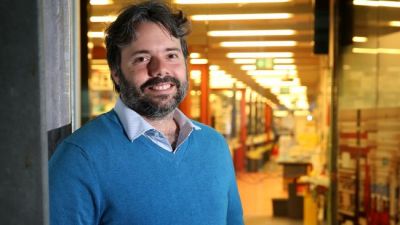Recipe for tissue repair a skin cell breakthrough
First appeared in the Herald Sun, 19 January 2016, by Brigid O’Connell
MELBOURNE researchers have created the “recipe book” for turning skin cells into almost any other cell in the human body.
The landmark finding from the international research project paves the way for growing whole organs from human cells, as well as fast-tracking cell regeneration treatments for conditions such as diabetes, heart attacks, Alzheimer’s, burns and spinal cord injury.

The Nobel prize-winning discovery in 2007 by Japanese researchers showed that mature cells in the body could be reprogrammed to become stem cells capable of turning into any tissue in the body.
The field of cell reprogramming has until now been moving slowly, stalled by the trial-and-error method of finding the right combination of proteins to create the desired cells.
But an algorithm created by University of Bristol scientists in the UK, and tested by Monash University stem cell biologists, has found a predictive model that calculates the right ingredients — the proteins needed to activate the right genes — to reprogram cells in as little as four months, instead of the usual three to four years.
The findings will be published on Tuesday in the prestigious journal Nature Genetics.
Monash PhD student Jaber Firas said their work, with supervisor Associate Professor Jose Polo, could allow doctors to treat conditions involving cell damage by replacing that with tissue grown from the patient’s own skin cells.
“Hopefully the recipe will pave the way to that, and it will fasten the work,” he said.
The Mogrify algorithm will today go online, allowing researchers to enter their starting and desired cell type to give them the right recipe.
Leader of the cardiac regeneration group at O’Brien Institute Department of the St Vincent’s Institute of Medical Research, Dr Shiang Lim — who is turning human skin cells into “beating heart” tissue to patch after heart attacks — said: “This is a very important finding, and will really advance the stem cell field in the repair and regenerative area.”
—
View the paper in Naure Genetics and the editorial piece, Enabling direct fate conversion with network biology.
